TZB-info - Gateway to the world of specialized information
TZB-info is an Internet resource specialising in information on construction, energy savings, and the related fields collectively referred to as mechanical and electrical systems usually known as building services (in Czech abbreviated as TZB). Its primary focus lies within the construction of buildings and energy issues related thereto. Whether you're looking for heating, electricity, heat loss reduction or building efficiency, the portal offers up-to-date information on the developments in those fields every day. The information presented by TZB-info is carefully selected and edited, serving a diverse audience of professionals ranging from designers to installers but also the general public. TZB-info records 750,000 visits every month. read whole text
Latest reviewed editorial research papers in the field of building services engineering
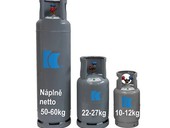 Heating
HeatingZkušenosti z provozu tepelných čerpadel 20: Zjištění tlakově slabého chladiva
2.3.2026 | Ing. Petr Michal, IVT Tepelná čerpadla s.r.o.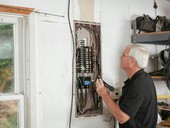 Heating
HeatingNámraza u tepelných čerpadel vzduch–voda
24.2.2026 | prof. Ing. Jiří Bašta, Ph.D., Ing. Vladimír Šulc, Ph.D. Heating
HeatingPodpůrný nástroj pro dekarbonizaci městských soustav centralizovaného zásobování teplem
12.2.2026 | Ing. Vojtěch Zavřel, Ph.D., Ing. Jan Šafránek, Ing. Nikola Pokorný, Ph.D.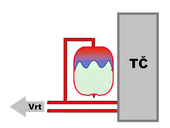 Heating
HeatingNávrh expanzní nádoby pro primární okruh tepelného čerpadla země-voda
9.2.2026 | Ing. Josef Hodboď, TZB-info, redakce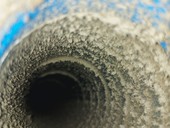 Ventilating and Air-Conditioning
Ventilating and Air-ConditioningPractical experience in cleaning ventilation systems in family houses
12.11.2024 | Ing. Pavla Skalická, Luftuj s.r.o., časopis VVI, 2/2024 | Vytápění větrání instalace, 2/2024Practical experience with the cleanability of parts of the forced ventilation system with heat recovery in family houses. The need for cleaning and design and assembly deficiencies that lead to difficult maintenance. Some policies to make service easier.
 Ventilating and Air-Conditioning
Ventilating and Air-ConditioningNení nová vyhláška 146/2024 Sb. o požadavcích na výstavbu cestou do pekla stavebnictví?
29.10.2024 | Ing. Jiří Petlach, st., Petlach TZB s.r.o.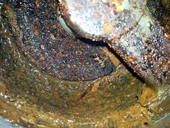 Ventilating and Air-Conditioning
Ventilating and Air-ConditioningTeplosměnné kapaliny pro topení a chlazení
9.8.2024 | Jan Skolil, CLASSIC Oil s.r.o. Ventilating and Air-Conditioning
Ventilating and Air-ConditioningMěření vybraných parametrů VZT pro posouzení kvality vnitřního prostředí
3.5.2024 | redakce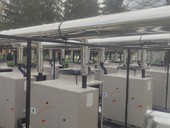 Water and Drainage
Water and DrainageFyzikálna analýza tepelných strát a možný návrh zdroja tepla pre otvorené vodné nádrže
4.2.2026 | prof. Ing. Miroslav Rímar, CSc., doc. Ing. Marcel Fedák, PhD., Ing. Michal Šmajda, PhD., Ing. Tomaš Hrebík, Ing. Andrii Kulikov, Ph.D.,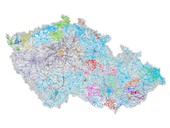 Water and Drainage
Water and DrainagePropojování skupinových vodovodů a vodárenských soustav jako adaptační opatření na změnu klimatu
27.1.2026 | Ing. Štěpán Zrostlík, Ph.D., Ing. Tomáš Hejduk, Ph.D., Ing. Ondřej Mašek, Ing. Petr Fučík, Ph.D., Ing. Ivo Kokrment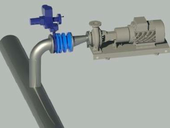 Water and Drainage
Water and DrainageČasté chyby v projektech z oblasti vodního hospodářství
16.1.2026 | Ing. Jiří Kratěna, Ph.D. Water and Drainage
Water and DrainageVyužití digitálních nástrojů pro podporu energetických auditů
4.12.2025 | Ing. Ondřej Doležal, energetický specialista podle §10 odst.1 písm. a) zákona č. 406/2000 Sb. Renewable Energy
Renewable EnergyZměny v povolovacích procesech pro FVE a agrovoltaiku ve světle nové legislativy
5.2.2026 | Anna Francová, Frank Bold Advokáti, s.r.o. Renewable Energy
Renewable EnergyFotovoltika a požiare striech: štatistické trendy a technické výzvy
2.2.2026 | Ing. Michal Kupec, Ing. Adela Palková, PhD., doc. Ing. ad Ing. arch. Milan Palko, PhD. Renewable Energy
Renewable EnergyVyužití hluboké geotermální energie v Evropě
21.11.2025 | prof. Ing. Tomáš Matuška, Ph.D., ČVUT v Praze, Univerzitní centrum energeticky efektivních budov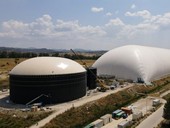 Renewable Energy
Renewable EnergyCO₂ jako baterie: Energy Dome přináší alternativu v ukládání elektřiny
16.9.2025 | Mgr. Oldřich Sklenář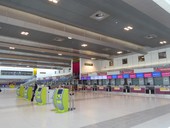 Electrical Engineering
Electrical EngineeringNetwork Standard for Building Automation BACnet – Part 2: Services and Interoperability
25.9.2025 | doc. Ing. Antonín Platil, Ph.D., ČVUT v Praze, Fakulta elektrotechnická (FEL)In this two-part series, we focus on the advanced standard for communication between automation devices in buildings. The previous part described the supported networks and object model. This second and final part describes the service system and tools for ensuring the interoperability of devices from different manufacturers.
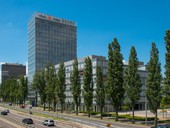 Electrical Engineering
Electrical EngineeringNetwork Standard for Building Automation BACnet - Part 1: Essentials, Networks and Objects
18.9.2025 | doc. Ing. Antonín Platil, Ph.D., ČVUT v Praze, Fakulta elektrotechnická (FEL)Building Automation and Control network (BACnet) is network protocol specifically designed for automation and control of technologies in buildings. Typical applications include heating, ventilation, air conditioning, lighting, access control and fire detection. It provides standardized framework for organizing and sharing information between networked control devices [1, 2]. Interoperability is provided through object model of information items and their properties and associated services. Flexibility is provided by a range of supported networking options from serial line to Ethernet and internet connection. However, BACnet does not guarantee interchangeability of products from various vendors and every controller or other product may require vendor-specific programming and configuration tools.
 Electrical Engineering
Electrical EngineeringZásobovanie teplom a umelá inteligencia
5.9.2025 | prof. Ing. Dušan Petráš, PhD., Stavebná fakulta STU Bratislava Katedra technického zariadenia budovHeat supply is a society-wide phenomenon that affects everyone. In other words, it is not just a matter of technical solutions, energy intensity, and environmental safety, but also of economic efficiency, both for individuals and legal entities. It is therefore important to optimize these processes related to the production, accumulation, distribution, and transfer of heat, for which the use of artificial intelligence is also appropriate.
 Electrical Engineering
Electrical EngineeringNedostatečná úroveň kyberbezpečnosti solárních elektráren: první incidenty a role Číny
25.2.2025 | Ing. Erika Langerová, ČVUT v Praze, Univerzitní centrum energeticky efektivních budov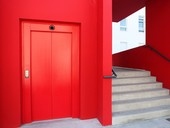 Elevators
ElevatorsProvozní prohlídky výtahů
24.8.2015 | Ing. Bohuslav Kratěna, Unie výtahového průmyslu České republiky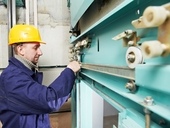 Elevators
ElevatorsPoznatky z prověřování (auditu) firem provádějících servis na výtazích
20.7.2015 | Vladimír Hulena, pověřený HK ČR k provádění audituCSN 27 4002 2014 Safety rules for lifts - Operation and service of lifts has introduced a new term by an authorized service company. It is the transparency of professional competence companies in servicing elevators, to owners / operators can better decide with whom an agreement that service because it has a major impact on their responsibility to ensure the safe operation of elevators. Therefore, for this situation was the subject of speculation, it was decided to examine service firms independent commissioners, contracted authorizing body, in this case, the Chamber of Commerce, which, when positive evaluation subsequently issue a certificate of authorization, and the company name may Authorized service company use.
 Elevators
ElevatorsNews in the standards and audits for elevator industry
28.7.2014 | Ing. Jan Dvořák, Ing. Bohuslav Kratěna, Vladimír HulenaUnion for Elevator Industry summarizes the most important news in the standards and audits, as presented at the seminar Elevators 2014. This includes controversy with a new concept of authorized service company that has been published on our portal in advance.
 Elevators
ElevatorsStandards in the projects in terms of fire safety of elevators
21.7.2014 | plk. Ing. Zdeněk Hošek, Ph.D., Ministerstvo vnitra - generální ředitelství Hasičského záchranného sboru ČRElevators belong to a very important building services and technologies. For these reasons, they need to pay attention not only in terms of proper technical implementation, but also in terms of fire safety. In particular, fire and evacuation lifts, which are also very important fire safety devices must also meet the stringent technical requirements of fire protection.
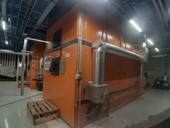 Energetics
EnergeticsPrevádzka nových zdrojov tepla v rámci celkovej rekonštrukcie
8.2.2026 | Ing. Rastislav Januščák, Ing. Július Jankovský, PhD. Energetics
EnergeticsDatová centra jako zdroj tepla
8.1.2026 | Ing. David Staněk, doc. Ing. Michal Kabrhel, Ph.D. Energetics
EnergeticsNová tarifní struktura 2027: v hlavní roli průběhové měření a flexibilita
8.12.2025 | Mgr. Jiří Zilvar, redakce Energetics
EnergeticsJak připojit do sítě více OZE za méně peněz? Jednou z možností je flexibilní připojení
21.10.2025 | Mgr. Oldřich Sklenář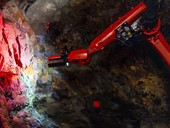 Facility management
Facility managementDigitalizace Podzemní laboratoře Josef
28.1.2026 | Ing.arch. Zdeněk Rudovský, Ph.D., Ing. Jiří Bendl, Fakulta stavební ČVUT, Centrum experimentální geotechniky; Ing. Martina Kulíková Facility management
Facility managementAkumulace energie a provoz budovy
2.1.2026 | doc. Ing. Michal Kabrhel, Ph.D., ČVUT v Praze, Fakulta stavební, katedra TZB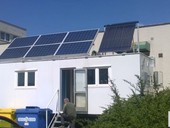 Facility management
Facility managementVýskum a vývoj stavebných konštrukcií s integrovanými energeticko-aktivnými prvkami
17.12.2025 | prof. Ing. Daniel Kalús, PhD., Ing. Mária Füri, PhD., Ing. Veronika Mučková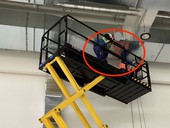 Facility management
Facility managementSafe Use of Mobile Elevating Work Platforms: Common Mistakes, Legislation and Best Practice Recommendations
13.10.2025 | Vladimír Baletka, jednatel společnosti eFAMECO s.r.o.The article focuses on the safe operation of Mobile Elevating Work Platforms (MEWPs) in compliance with current Czech legislation and technical standards. It highlights common mistakes observed in practice, the responsibilities of operators and employers, requirements for documentation, inspections, and operator training. Special attention is given to the use of personal fall protection equipment, the platform work system, and legal obligations under Act No. 250/2021 Coll., Government Decree No. 193/2022 Coll., Government Decree No. 362/2005 Coll., and EN 280. The text provides practical recommendations to ensure workplace safety and legal compliance for MEWP operators.
RECENT REVIEWED EDITORIAL RESEARCH PAPERS IN THE FIELD OF BUILDING SERVICES ENGINEERING
Heating | Ventilating and Air-Conditioning | Water and Drainage | Renewable Energy | Electrical Engineering | Energetics
Latest reviewed editorial research papers in the field of construction
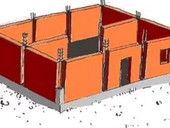 Shell Construction
Shell ConstructionZdivo sevřené a seizmicky zatížené konstrukce
16.2.2026 | Ing. Miroslav Vokáč, Ph.D., Kloknerův ústav, ČVUT v Praze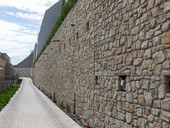 Shell Construction
Shell ConstructionPríklad železobetonových konštrukcií zabezpečujúcich ostrý svah
26.1.2026 | Ing. František Hladký, Ing. Daniela Piliarova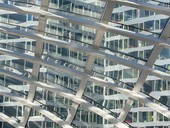 Shell Construction
Shell ConstructionEurokódy pro zásady navrhování a zatížení konstrukcí, stav na konci roku 2025
5.1.2026 | doc. Ing. Jana Marková, CSc., ČVUT Praha, Kloknerův ústav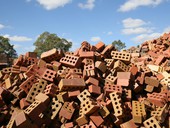 Shell Construction
Shell ConstructionEnvironmental Impacts of Using Recycled Materials in Construction Products
30.11.2025 | Ing. Veronika Sojková, Ph.D., ČVUT v Praze, Fakulta stavebníRecycling materials is an effective way to reduce the consumption of primary resources in construction. However, challenges arise when integrating recycled materials into construction products, primarily due to the variability of their quality, which can impact production processes. This paper explores the balance between recycling and decarbonization goals in the manufacturing of ceramic materials, examining both legislative pressures and environmental objectives. The paper emphasizes the need for optimized recycling strategies and innovative solutions that align with circular economy principles to meet sustainability targets in construction.
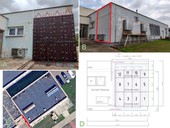 Insulation, Roofs, Facades
Insulation, Roofs, FacadesAplikácia inovatívnych panelov s aktívnou tepelnou ochranou na fasádu budovy
19.1.2026 | Ing. Veronika Mučková, prof. Ing. Daniel Kalús, PhD., prof. dr. Simon Muhič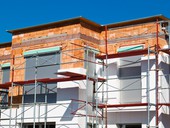 Insulation, Roofs, Facades
Insulation, Roofs, FacadesGuide for Manufacturers of External Thermal Insulation Composite Systems (ETICS)
8.12.2025 | Ing. Štěpán Vrhel, Technický a zkušební ústav stavební Praha (TZÚS)This article outlines the assessment and market placement of External Thermal Insulation Composite Systems (ETICS) in the Czech Republic and the EU. It compares national (STO) and European (ETA/EAD) procedures, focusing on manufacturers’ duties in quality management and conformity assessment. Key changes include the new EAD 040083-01-0404, the phase-out of ETAG 004, and the forthcoming harmonized standard EN 17237. Selected test methods—hygrothermal performance, water absorption, mechanical resistance, adhesion, and pull-through resistance of anchors are presented. The paper describes the role of certification bodies.
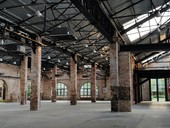 Insulation, Roofs, Facades
Insulation, Roofs, FacadesMasonry Moisture Contens Measurement According to WTA. Practise and Drawbacks.
24.11.2025 | Ing. Pavel Šťastný, CSc., autorizovaný inženýrThis paper deals with methods used for estimation of masonry moisture contens as part of building technical survey. General description comes from WTA 4-11 Recomendation and Czech standard CSN P 730610 “Waterproofing of buildings. Rehabilitation of damp masonry”. Different practise, used during survey, caused by unspecified procedures, is discussed. Also misinterpretation of measured values, caused by waterproofing and water repelent layers on masonry is being shown.
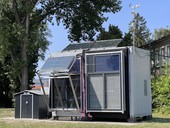 Insulation, Roofs, Facades
Insulation, Roofs, FacadesDynamická energetická simulácia budovy s aplikáciou ekologickej modulárnej adaptívnej fasády
27.10.2025 | Ing. Alžbeta Danková, prof. Ing. Boris Bielek, PhD., Mgr. Daniel SzabóThis study applies dynamic simulation methods for the design of energy-efficient buildings with double transparent facades. The aim is to comprehensively quantify the impact of double transparent facades on the internal environment of buildings in terms of heating and cooling. The article compares the thermal comfort and energy consumption of two variants – with and without exterior blinds. The simulation analyzes parameters such as air temperature, relative humidity, lighting intensity, and energy consumption. Emphasis is placed on identifying the potential for energy savings associated with shading. The analysis also addresses the sensitivity of the results to changes in input parameters. This study provides valuable data for our interdisciplinary research.
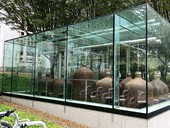 Windows, Doors
Windows, DoorsBonded Joints of Glass Structures
23.12.2024 | Ing. Jakub Mareš, Ing. Yasmina Boutar, Ph.D., prof. Ing. Martina Eliášová, CSc.This paper presents the results of an experimental investigation into fully transparent bonded joints for load-bearing glass structures. The research specifically focused on the surface properties of glass that affect the load-bearing capacity of the joints, such as surface energy, wettability, and roughness. It also discusses the differences between the tin and air sides of the glass sheets.
The findings are supported by tests conducted at the Faculty of Civil Engineering at CTU between 2021 and 2023. Tensile and dynamic tests of the selected adhesive LOCTITE® EA 9455 as well as shear tests of single-shear glass-to-glass joints, were evaluated, with a focus on the load-bearing capacity of the joints at elevated temperatures.
The paper concludes with a summary of the results and suggests their implications for engineering practice.
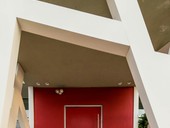 Windows, Doors
Windows, DoorsPrinciples of Installation and Drawing Opening Fillers - Part 2: Doors
16.9.2024 | Ing. Zuzana Rácová, Ph.D., Ing. Aneta Libecajtová, Ph.D.The article focused on the issue of installing door panels in interior vertical load-bearing and partition structures. The paper presents selected types of door panels primarily used in apartments and family houses, describes the principles of their installation, and their depiction in drawing documentation in accordance with the ČSN 01 3420 standard for drawing construction parts. It is necessary to correctly and clearly apply the rules of the standard to the depiction of currently used door panels.
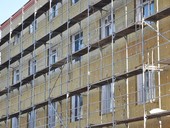 Windows, Doors
Windows, DoorsPrincipy osazování a zakreslování otvorových výplní – Díl 1: Okna
8.4.2024 | Ing. Zuzana Rácová, Ph.D., Ing. Aneta Libecajtová, Ph.D.The article is focused on the issue of installing windows in external walls and their drawing in accordance with the standard ČSN 01 3420 Construction drawings - Presentation of general arrangement drawings. The paper highlights the obsolescence of previous solutions in light of current requirements for the energy efficiency of buildings and technological advancements in construction. Specifically, it is focused on the principles of installing opening fillings, including thermal and technical requirements, and technological aspects. It is shown that incorporating new technological processes and energy efficiency requirements necessitates reflecting these changes in the project documentation as well. Furthermore, the article addresses the depiction of current solutions in construction practice in accordance with the ČSN 01 3420 standard at scales of 1:50 and 1:20.
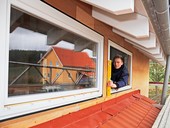 Windows, Doors
Windows, DoorsThermal Properties of Double Window and Modern Construcions Jamb
20.3.2023 | Ing. Lucie Kudrnáčová, Ph.D, ČVUT v Praze, Kloknerův ústav, Oddělení stavebních materiálůThe paper deals with the comparison of the thermal properties of jamb for different types of windows. In the case of reconstruction, it is often necessary to preserve the original double- windows or to use modern materials due to the thermal solution of the building. Modern constructions mean the use of double or single windows with thermal-insulating glazing. These changes in the construction of the window have an effect on the thermal processes on the structure. One of the important parameters for the assessment of the building structure is the assessment of the internal surface temperature of the building structure. This article shows the difference in finishes and heat flows to remove different types of windows. The reference window for comparison is the original double history window. The results were found in a model environment in 2D software.
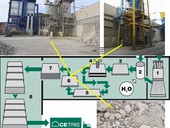 Floors, Partition Walls, Surfaces
Floors, Partition Walls, SurfacesWood-cement Composites Modified with Waste Dust from the Processing of Cement-bonded Particleboards
15.12.2025 | Ing. Silvestr Vasas, Ing. Tomáš Melichar, Ph.D., Ing. Amos Dufka, Ph.D., prof. Ing. Pavel Schmid, Ph.D., doc. Ing. Jiří Bydžovský, CSc.The article presents research focused on a detailed analysis of cement-bonded particle boards modified with waste dust. This dust is produced during the grinding and cutting of cement-bonded particle boards. The emphasis was mainly placed on the behavior of boards with a modified composition with regard to their hygroscopicity and useful properties. The properties of three types of boards were analyzed – reference (Portland and blended cement) and dust-modified (filler and matrix – based on Portland and blended cement, substitution with waste dust in an amount of 8%). The boards were exposed to an environment with variable relative humidity (0% to 96%), with a gradient of increase and decrease of 10%. The output of this measurement is sorption curves. Subsequently, the mechanical properties (strength characteristics and modulus of elasticity) were tested on the test specimens. The obtained sorption isotherms confirmed the different behavior of individual composites in response to changes in ambient relative humidity. The results indicate that the composition of the mixture has a significant influence not only on sorption processes, but also on the stability of the wood filler itself, specifically spruce chips contained in the material. However, the behavior of the analyzed types of boards in terms of hygroscopicity is very similar. An increase in strength and modulus of elasticity was observed in all tested board variants. This finding is a positive sign for the further use of stabilized alternative raw materials in cement-bonded particle boards. The use of waste dust has significant potential to positively impact the environment, i.e., by consuming waste that would otherwise be a burden on the environment.
 Floors, Partition Walls, Surfaces
Floors, Partition Walls, SurfacesUpdate of the Czech Standard ČSN 74 4505 Floors – Common Regulations
18.11.2025 | Ing. Petr Tůma, Ph.D., autorizovaný inženýrIn 2025, the ČSN 74 4505 standard was updated. The article presents the main changes compared to the previous version published in 2012.
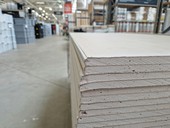 Floors, Partition Walls, Surfaces
Floors, Partition Walls, SurfacesThe Effect of Moisture on Fire-degraded Plasterboard
4.9.2025 | Bc. Tomáš Macháček, ČVUT v Praze, Fakulta stavebníThis article addresses the issue of the effect of moisture on the characteristic manifestations of plasterboard. It first summarizes the processes of plasterboard in fire. It then highlights the influence of fire-fighting water. Second, it describes an experiment carried out in which fire-degraded plasterboard samples were exposed to water. Their subsequent natural drying was also measured.
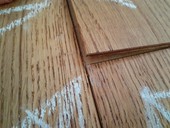 Floors, Partition Walls, Surfaces
Floors, Partition Walls, SurfacesPokládka podlah na anhydritové potěry – 3. díl: dřevěné podlahy
16.10.2024 | Milan Mrkáček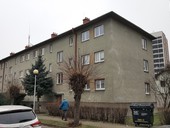 Low Energy Buildings
Low Energy BuildingsEPBD IV.: Transformace bytového domu na budovu s téměř nulovými emisemi CO2
21.4.2025 | Ing. Veronika Dokoupilová, doc. Ing. Petr Horák, Ph.D.Preparations for the implementation of the EPBD IV directive, i.e. the transition to nearly zero-emission buildings, into Czech legislation are underway. The results of the study indicate options leading to compliance with EPBD IV in an apartment building.
 Low Energy Buildings
Low Energy BuildingsSBToolCZ. The Latest Online Version of the National Building Sustainability Assessment Methodology
6.2.2023 | Ing. Kateřina Klepačová, Ing. Magdaléna Novotná, Ph.D., Ing. Martin Volf, Ph.D., Ing. Jakub Diviš, Ph.D., Ing. Jan Růžička, Ph.D.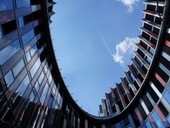 Low Energy Buildings
Low Energy BuildingsEnvironmental Certification of Buildings - the Situation in the Czech Republic
30.4.2021 | Ing. Zuzana Mrňová, VUT FAST Brno, Ústav stavební ekonomiky a řízeníA responsible approach to the environment is not only related to corporate ecology, but is also increasingly reflected in the design and construction of buildings, which is closely related to the concept of sustainable construction of buildings. With the development of sustainable construction, the need arose to evaluate buildings and their impact on the environment. For this reason, environmental certifications of buildings have been developed, which assess how a building affects its surroundings during its life cycle.
The aim of this article is to find out which environmental certifications exist in the world and which of them are most often used in the Czech Republic. Finally, the certifications are compared and their main differences are described.
 Low Energy Buildings
Low Energy BuildingsStavebně-energetické koncepce budov ve společenských souvislostech
8.2.2021 | prof. Ing. Jan Tywoniak, CSc., ČVUT v Praze | Dřevo&Stavby Profispeciál 2020 Wooden Buildings
Wooden BuildingsKotvení a spojování stěnových panelů vícepodlažních dřevostaveb
22.12.2025 | Ing. Lukáš Velebil, Ph.D., Ing. Šimon Matějka, doc. Ing. Petr Kuklík, CSc., Ing. Jan Pošta, Ph.D., Ing. Martin Hataj, Ph.D., Ing. Jan JochmanIn this paper, the authors present an experimental analysis focused on the behavior of reinforced walls in multi-story cross-laminated timber (CLT) buildings in relation to the stiffness of the ceiling structure. As part of the experimental analysis, a test was performed on a set of structural-sized bracing walls, focusing on panel joints and anchoring, as well as a series of additional tests on shear angles and tension anchors. The analysis shows that the load on the lower wall panel from the upper panel is not uniform. This contradicts classical models, which assume a uniform load on the upper edge of the lower panel along its entire length. The flexibility of the ceiling panel also affects the load transferred to the tension anchors.
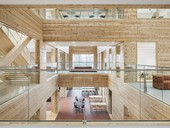 Wooden Buildings
Wooden BuildingsNormy, certifikace a testování jsou klíčem k bezpečným a kvalitním dřevostavbám
14.8.2025 | Ing. Jitka Beránková, Ph.D., Ing. Barbora Lošťáková, Ing. Antonín Novotný MBA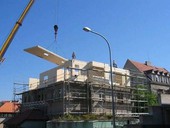 Wooden Buildings
Wooden BuildingsCo je třeba vědět při navrhování vícepodlažních dřevostaveb
14.7.2025 | doc. Ing. Petr Kuklík, CSc., Ing. arch. Bc. Anna GregorováCurrently, we are increasingly confronted with demands for the construction of multi-story wooden structures, where wood and wood-based materials would be predominantly used. This is due to new wood-based products offering this alternative construction method with significant ecological benefits. This is also made possible by the deepening knowledge about the design of structural systems for multi-story wooden buildings, particularly in terms of their load-bearing capacity, stiffness, and fire resistance.
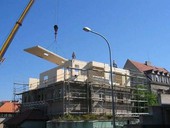 Wooden Buildings
Wooden BuildingsAktuální stav technické normalizace pro dřevostavby
9.6.2025 | doc. Ing. Petr Kuklík, CSc., Ing. arch. Bc. Anna GregorováAlthough the term wooden construction is not introduced in our legal regulations, we commonly understand this term as constructions in which wood and wood-based products are the main material used. However, the proportion of wood and wood-based products is not defined and depends on the construction system used. Wooden constructions are currently the subject of growing interest among developers, architects, civil engineers and the public. This is mainly due to the fact that they offer an alternative method of building construction with great ecological benefits. Their advantage is also the speed of construction and usually low demands on the equipment of the construction site. Technical standards are important for their design and implementation.
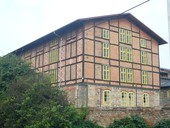 Building Regeneration
Building RegenerationVlastnosti a druhy materiálů pro zateplování hrázděných staveb
28.2.2026 | Ing. Pavel Šťastný, CSc., inženýr s autorizací WTA pro sanaci vlhkého zdiva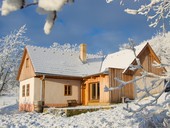 Building Regeneration
Building RegenerationComprehensive Map Database of Historic Earthen Buildings in the Czech Republic
28.12.2025 | PhDr. Martin Novotný, Ph.D., Ing. Zdeněk Vejpustek, Ph.D., doc. Ing. Ivana Žabičková, CSc., Ing. Jan Müller, Ph.D., Ing. arch. Roman BolcekBuilding with earth is gaining increasing attention, partly because there are many high-quality historical and contemporary earthen buildings in our country. Documenting the extent of the earthen building heritage has the potential to strengthen the perception of earthen construction as a valuable part of cultural heritage and as a promising tool for sustainable construction. This article presents the research framework, methodology, and starting points for the upcoming map output Historical Earthen Buildings in the Czech Republic, which aims to systematically map the occurrence, frequency, and typology of these structures.
 Building Regeneration
Building RegenerationNejčastější statické problémy historických cihelných objektů
20.10.2024 | Ing. Jan Zima, Rekonstrukce památkových objektů-atelier statiky spol. s r.o. Building Regeneration
Building RegenerationNon-destructive Determination of Building Stone Provenance
26.8.2024 | Mgr. Kateřina Kovářová MBA, Ph.D,, Ing. Eva Matoušková, Ph.D.In our practice, we often face the question of building stone provenance on historic buildings. However, methods providing relevant answers to this question are mostly of a destructive character requiring sampling. Therefore, our research has focused on the use of reflectance spectrometry, which is a very promising and effective non-destructive method. This paper discusses the basic principles and possibilities of this method with regard to its application to historic buildings and decorative stone.
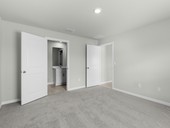 Building Physics
Building PhysicsPoznámka k povaze hygienických limitů
5.11.2025 | doc. Ing. Jan Kaňka, Ph.D., člen TNK 76 Osvětlení, ČKAIT PrahaThe nature of hygienic limits is different from technical limits. Little awareness of this property has led to misunderstandings in the field of housing construction when creating binding regulations and when applying them. As a result of Act 258/2000 Sb. [1], no one has the right to control, co-create and defend the environmental conditions in apartments from a health perspective.
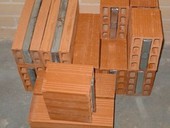 Building Physics
Building PhysicsReview of Phase Change Materials (PCMs) for Sustainable Construction
3.11.2025 | Ing. Zuzana Dická, prof. Ing. Milan Ostrý, Ph.D., Ing. Sylva Bantová, Ph.D, doc. Ing. Erika Dolníková, PhD., prof. Ing. Dušan Katunský, CSc.This review describes Phase Change Materials (PCMs) as an advanced solution for improving building energy efficiency and thermal comfort. It synthesizes insights into their evolution, categorization, and practical construction applications. It discusses PCMs history, operational principles, diverse typologies, and classification, including composite PCMs. It elucidates specific building applications, illustrating their integration based on recent research. The aim is to provide an overview of PCMs development and underscore their significance as a sustainable instrument for mitigating energy operating costs and elevating thermal comfort in contemporary construction. Concurrently, it delineates current obstacles and proposes strategic research directions, focusing on thermophysical property optimization, economic viability, and ecological sustainability.
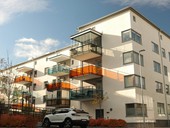 Building Physics
Building PhysicsÚčinok a požiadavky na tepelné izolovanie deliacich konštrukcií v bytových domoch
13.10.2025 | doc. Ing. Peter Buday, PhD., doc. Ing. Rastislav Ingeli, PhD.The currently valid standard STN 73 0540-2/Z1+Z2, 2019 [1] defines thermal requirements not only for external envelope structures, but also for internal partition structures in residential buildings. These are defined by the thermal conductivity coefficient U (previously referred to as thermal resistance R) depending on the temperature difference between the rooms separated by these wall and ceiling structures. Based on a specific apartment in a prefabricated ZT building system, this paper quantifies the effect of this thermal insulation of partition structures (ceilings and walls) on the heat demand for heating (and thus its energy intensity) depending on the calculated temperature difference between the analyzed apartment and all neighboring apartments throughout the winter heating season.
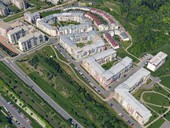 Building Physics
Building PhysicsObytný soubor Zelené údolí a zákon 258/2000 Sb.
8.9.2025 | doc. Ing. Jan Kaňka, Ph.D., člen TNK 76 Osvětlení, ČKAIT PrahaThe article discusses the impact of the abolition of the requirement for sunlight in apartments in binding regulations on public health. It notes the fact that as a result of Act 258/2000 Coll., no one has the right to control, co-create and defend the environmental conditions in apartments from a health perspective.
RECENT REVIEWED EDITORIAL RESEARCH PAPERS IN THE FIELD OF CONSTRUCTION
Shell Construction | Insulation, Roofs, Facades | Windows, Doors | Floors, Partition Walls, Surfaces | Low Energy Buildings | Wooden Buildings | Building Regeneration | Building Physics